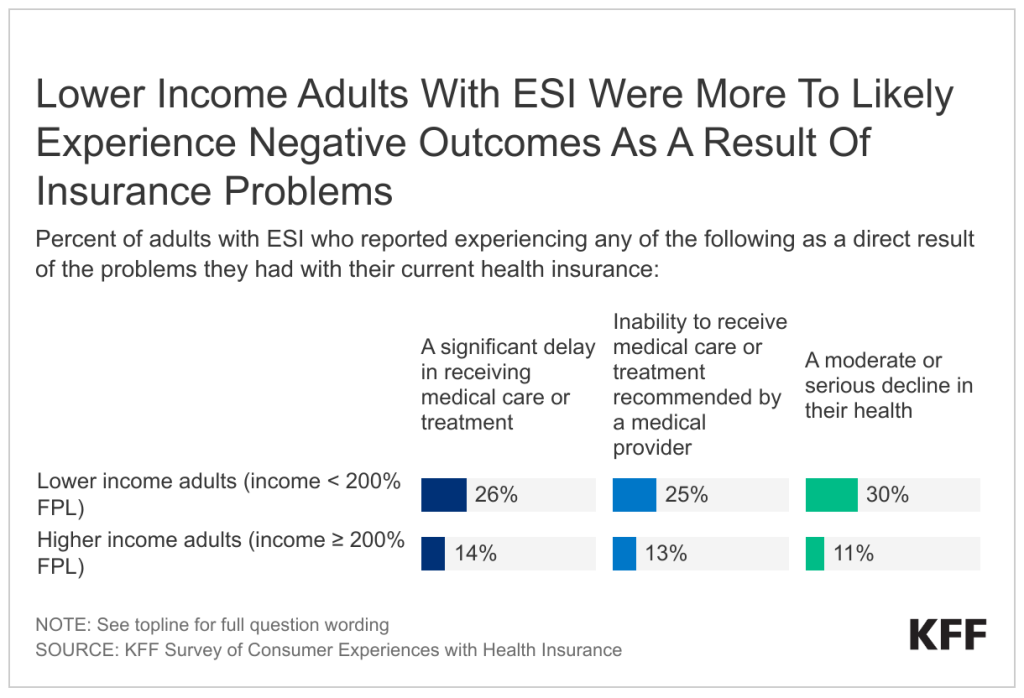
The independent source for health policy research, polling, and news.
Lower-Income People with Employer Coverage are More Likely to Report Negative Outcomes Due to Insurance Problems Than Their Higher-Income Peers
Lower-income adults with employer coverage are more likely than their higher-income peers to report negative outcomes due to problems using their insurance, a new KFF analysis shows.
Drawing on data from the KFF Survey of Consumer Experiences with Health Insurance, the analysis shows that similar shares of lower- and higher-income adults with employer coverage report having common problems with their insurance such as denied claims or prior authorization issues.
At the same time, those with lower incomes are more likely than their higher-income peers to say they suffered adverse consequences due to insurance problems. This includes experiencing a significant delay in getting needed care or being unable to get recommended medical treatment. In addition, nearly three times as many of those with lower incomes report suffering a moderate or serious decline in their health compared to those with higher incomes.

In addition, about three-in-10 people with employer coverage also say that they had problems paying for medical care in the past year (31%), more than double the share among those with higher incomes (13%).
The analysis also examines differences among lower- and higher-income adults with employer coverage in their satisfaction with their coverage and plan’s provider networks, and in the ease of signing up and comparing their coverage options.